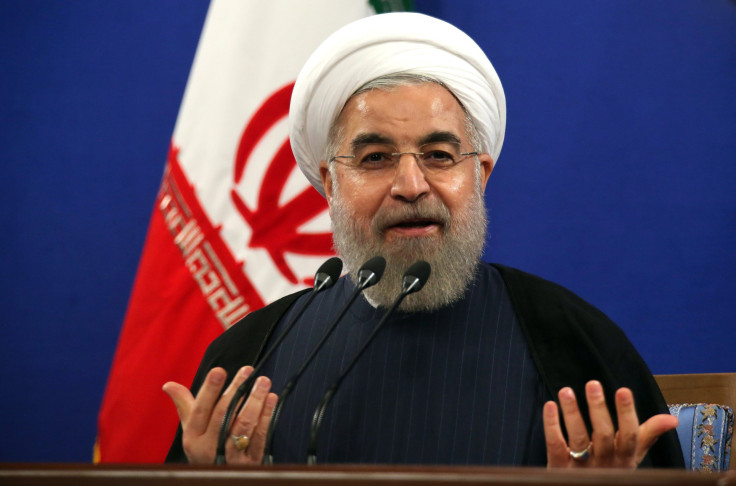Nuclear Deal Could Pave The Way To Better Ties, But US Must Apologize For Past Mistakes, Iranian President Says

Speaking to an Italian newspaper ahead of his trip to the country, Iranian President Hassan Rouhani said that the recently signed nuclear deal between Iran and the West could lead to better ties with the U.S. and an eventual reopening of embassies in the respective capitals. However, he clarified, the deal is unlikely to lead to warmer ties between the two longstanding foes, unless it is “implemented well.”
“The nuclear agreement is one thing, our relationship with the United States another. The problems we have with them start with the victory of the Islamic Revolution,” Rouhani said, during an interview with the Corriere della Sera newspaper. “But the way we apply the agreement may have an impact on the future. If implemented well, it will lay the groundwork for lowering tensions with the U.S., and create conditions for a new era.”
Under the Joint Comprehensive Plan of Action (JCPOA) -- reached in July after protracted negotiations -- crippling sanctions against Iran will be lifted in exchange for the country limiting its sensitive nuclear program and allowing international inspectors limited access to its military sites. However, hard-liners in both Iran and the U.S. continue to oppose the deal, citing an historical animosity between the two nations.
Ties between the two nations soured in 1979, when the Islamic Revolution overthrew the U.S.-backed shah of Iran, Mohammed Reza Pahlavi. The U.S. embassy in Iran was shut down the same year after 52 Americans were kidnapped and held for 444 days in the compound.
Bilateral ties further worsened during George Bush’s presidency in the U.S. and the ultra-conservative Mahmoud Ahmadinejad’s tenure in Iran. Between 2006 and 2013, the United Nations, the U.S. and the European Union ratified several rounds of crippling sanctions on Iran over fears that it was developing nuclear weapons.
However, Ahmadinejad’s successor Rouhani -- who came to power in 2013 following a campaign of “moderation and prudence,” has since sought to improve ties with the U.S. Within weeks of taking office, Rouhani spoke on the phone to U.S. President Barack Obama -- the first direct contact at the highest level between Iran and the U.S. since the 1979 revolution.
“If they [the U.S.] change their policies, correct the mistakes made in the past 37 years and apologize to the Iranian people, the situation will change and good things will happen,” Rouhani said in the interview, published Thursday.
During his visit to Italy, which marks the first visit to Europe by an Iranian president in over a decade, Rouhani will meet leaders from Italy and France, and also hold talks with Pope Francis, who, in July, lauded the nuclear agreement as “a step toward a more secure and fraternal world.”
© Copyright IBTimes 2024. All rights reserved.






















